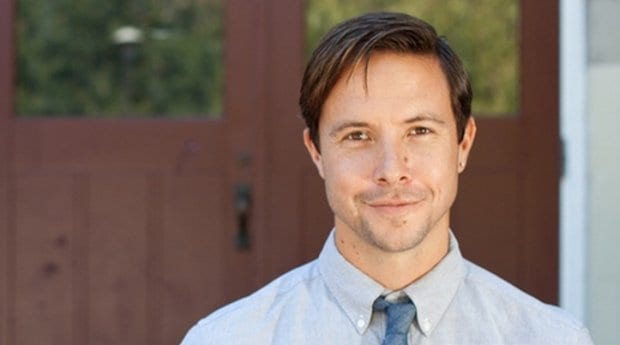Mischa Oak is well acquainted with political life behind the scenes, having been president of the Vancouver Centre NDP. His decision to run for Vancouver School Board on a Green Party ticket in the November civic election marks his first foray into the electoral limelight.
Oak, who is gay, has served on the Vancouver Pride Society’s board of directors and as volunteer coordinator for its 2012 Pride season. He has also been a substitute teacher in Vancouver since 2008 and has taught in almost every school in the district.
“I’ve always really been interested in progressive policy and how government makes our communities better,” says Oak, who was born and raised in Vancouver.
It’s an important time to have a member of the community running for school board as well as someone who has worked in the school system, he says.
“I’m really trying to bring forward a voice of standing up for all students who may feel vulnerable in the system or people who have been marginalized by the system,” he says.
“I want to make sure there’s someone on the school board who has experienced the school system recently, experienced its culture of cuts, experienced the disparity that exists between east side schools and west side schools; I really want to bring the voice of the classroom back to the school board.”
He says if anything positive has come out of the long, contentious labour dispute between the province and teachers, it’s a renewed public interest in public education.
He refers to Vancouver’s much-cited reputation as one of the most livable cities in the world and says his experience of Vancouver schools doesn’t reflect that status. “Right now, it’s a culture of survival.”
Oak, who graduated from high school 15 years ago, remembers the harassment he faced as a student and says discrimination continues to be an issue.
He recalls his efforts to intervene on behalf of a student who was being called a faggot in the hallways of a south-side school. He says the principal’s response was that there was a gay-straight alliance in the school.
“A policy is great, but we need to make sure we have trustees who are standing guard for all vulnerable students and making sure those policies are actually being implemented at the school level,” he contends.
He says the emphasis on language monitoring is overshadowing the need to encourage students to celebrate diversity. “That’s not enough. We have to say, ‘Yes, we’re gay, yes, I’m a lesbian, yes, I’m trans, and I’m adding that to the school community. I make my school better.’
“It’s a culture shift, really,” he says. “It’s not just something we have to deal with; it’s something we’re really proud of.”
Having a trustee who identifies as queer championing those issues is important, he says. “I’ll always listen to everybody, but you will know in a meeting with me that I’m standing up for queering our curriculum and making our schools proud.”
He acknowledges that Vision Vancouver has acted on several initiatives, including trans-friendly policies at the school and parks boards, establishing an LGBTQ advisory committee at city hall, and developing a community plan that focuses on the importance of a vibrant gay village.
While he applauds the progress made and is aware that people are happy about the queer advocacy taking place, he feels there’s room and a desire for another voice at the table.
“We can have queer voices from multiple parties, and a lot of people view a school trustee from the Green Party as another opportunity to bring issues forward,” he says.
Oak says he chose to be part of the Green Party slate because he believes it seeks community collaboration and is not in the pockets of developers, an accusation that has dogged both Vision Vancouver and the Non-Partisan Association.
He maintains that a lot of people have ideas about how they’d like to see the city, schools and parks run but feel they’re not being heard. “It’s almost this sense of ‘I live here, but my voice isn’t important,’” he contends.
“We need to restructure the way we involve the community so that we’re actually listening to them, and then make our decisions.”
Apart from Oak, Janet Fraser is the only other Green Party candidate for school board. The party is also fielding three city council candidates (Councillor Adriane Carr, as well as Cleta Brown and Pete Fry) and two park board candidates (Stuart Mackinnon and Michael Wiebe).
Municipal elections will take place throughout BC on Nov 15.


 Why you can trust Xtra
Why you can trust Xtra


